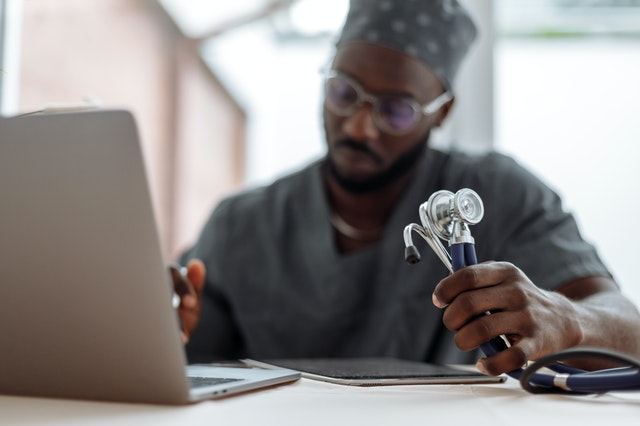
Early in the COVID-19 pandemic, clinical rotations were halted for medical students, which meant they could not participate in patient rounds—those bedside consultations with seasoned medical staff to discuss and learn about a patient’s condition.
This led Mark Cohen, a professor of surgery and pharmacology who runs the Innovation and Entrepreneurship program at the Medical School to think about a plan for virtual rounds. Cohen reached out to the Center for Academic Innovation, which connected him with Microsoft.
This led to a HoloLens2 rounds project in which one person at the bedside wears an MR (mixed reality) headset while others nearby or even at home can remotely “examine the patient,” ask questions, and give input. The project is believed to be the first of its kind in the U.S. The only other known project is at Imperial College of London, which recently collaborated with U-M on an International Mixed Reality Grand Rounds event.
“The goal on the telerounding side is to increase connectivity and limit exposures in the short term but also make this part of the workflow process that will be helpful for rounding in general,” Cohen said.
